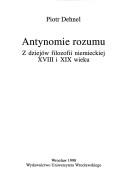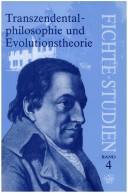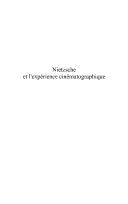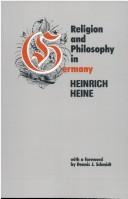| Listing 1 - 10 of 313 | << page >> |
Sort by
|
Book
ISBN: 9782729574642 2729574646 Year: 2009 Publisher: Lille : ANRT. Atelier national de reproduction des thèses,
Abstract | Keywords | Export | Availability | Bookmark
 Loading...
Loading...Choose an application
- Reference Manager
- EndNote
- RefWorks (Direct export to RefWorks)
Book
ISBN: 2200265182 9782200265182 Year: 2006 Publisher: Paris Colin
Abstract | Keywords | Export | Availability | Bookmark
 Loading...
Loading...Choose an application
- Reference Manager
- EndNote
- RefWorks (Direct export to RefWorks)
De l'Allemagne d'avant 1945 nul n'ignore qu'elle fut la " patrie des poètes et des penseurs ", parallèlement à un destin national singulier qui avait fini par faire de ce pays une manière d'objet philosophique en soi. Mais l'Allemagne, ou plutôt les Allemagnes, d'après 1945 ? Là où la France, cultivant un rapport mythologisé à elle-même et à sa continuité, s'est autorisé bien des cécités, tout porte à penser que la coupure subie par l'histoire allemande a favorisé une confrontation plus rude, plus réaliste et plus exigeante au passé comme à la contemporanéité. Un gigantesque chantier pour une épistémè en restructuration radicale : c'est ainsi qu'apparaît à Gérard Raulet le demi-siècle écoulé. De sa restauration dans les premières décennies de la RFA et dans la RDA jusqu'aux débats actuels sur le libéralisme et le communautarisme, la philosophie allemande a remis en question sa conception de la Bildung et d'une culture atemporelle. Le présent livre ne se résume pas à une série de monographies sur des systèmes de pensée. Il inscrit ces derniers dans le mouvement général des idées et dans les problématiques à la fois intellectuelles et politiques dont ils sont indissociables.
Book
ISBN: 9629968959 9789629968953 9789629966454 962996645X 9781438458816 1438458819 Year: 2015 Publisher: Baltimore, Maryland : Baltimore, Md. : Project Muse, Project MUSE,
Abstract | Keywords | Export | Availability | Bookmark
 Loading...
Loading...Choose an application
- Reference Manager
- EndNote
- RefWorks (Direct export to RefWorks)
In Res Publica, Günter Zöller offers a concise and perceptive analysis of the influence that Plato's Republic had on the political thought of three leading German philosophers rarely discussed together -- Kant, Hegel, and Fichte. He investigates how these three thinkers engaged with one of the founding texts of Western political philosophy to offer their particular interpretations of the forms and norms of the political organization known as the "commonwealth" or res publica. Professor Zöller contextualizes the encounter between an ancient thinker and his modern descendants to demonstrate how the ongoing dialogue between ancient republican thought and nineteenth-century German Idealism extends to the modern era.
Book
Year: 2005 Publisher: Paris : PUF,
Abstract | Keywords | Export | Availability | Bookmark
 Loading...
Loading...Choose an application
- Reference Manager
- EndNote
- RefWorks (Direct export to RefWorks)

ISBN: 8322918445 Year: 1998 Volume: 2093 Publisher: Wrocław Wydawnictwo uniwersytetu Wrocławskiego
Abstract | Keywords | Export | Availability | Bookmark
 Loading...
Loading...Choose an application
- Reference Manager
- EndNote
- RefWorks (Direct export to RefWorks)
Philosophy, German --- -Philosophy, German --- -German philosophy

ISSN: 09250166 ISBN: 905183392X 9004456554 9789051833928 9789004456556 Year: 1992 Volume: 4 Publisher: Amsterdam Rodopi
Abstract | Keywords | Export | Availability | Bookmark
 Loading...
Loading...Choose an application
- Reference Manager
- EndNote
- RefWorks (Direct export to RefWorks)
Fichte, Johann Gottlieb, --- Evolution --- German philosophy --- Transcendentalism

ISBN: 2747583201 9782747583206 Year: 2005 Publisher: Paris : Editions L'Harmattan,
Abstract | Keywords | Export | Availability | Bookmark
 Loading...
Loading...Choose an application
- Reference Manager
- EndNote
- RefWorks (Direct export to RefWorks)
Book
ISBN: 2747582892 9782747582896 Year: 2005 Publisher: Paris L'Harmattan
Abstract | Keywords | Export | Availability | Bookmark
 Loading...
Loading...Choose an application
- Reference Manager
- EndNote
- RefWorks (Direct export to RefWorks)

ISBN: 1438406363 0585068879 9780585068879 9780887062827 0887062822 9780887062834 0887062830 9781438406367 0887062822 0887062830 Year: 1986 Publisher: [Albany, NY] : State University of New York Press,
Abstract | Keywords | Export | Availability | Bookmark
 Loading...
Loading...Choose an application
- Reference Manager
- EndNote
- RefWorks (Direct export to RefWorks)
Philosophy, German. --- German philosophy --- Germany --- Religion.
Book
ISBN: 1283430118 9786613430113 3110254182 9783110254181 9783110254174 3110254174 9781283430111 3110254174 Year: 2011 Publisher: Berlin Boston
Abstract | Keywords | Export | Availability | Bookmark
 Loading...
Loading...Choose an application
- Reference Manager
- EndNote
- RefWorks (Direct export to RefWorks)
Nicolai Hartmann was one of the most prolific and original, yet sober, clear and rigorous, 20th century German philosophers. Hartmann was brought up as a Neo-Kantian, but soon turned his back on Kantianism to become one of the most important proponents of ontological realism. He developed what he calls the "new ontology", on which relies a systematic opus dealing with all the main areas of philosophy. His work had major influences both in philosophy and in various scientific disciplines. The contributions collected in this volume from an international group of Hartmann scholars and philosophers explore subjects such as Hartmann's philosophical development from Neo-Kantianism to ontological realism, the difference between the way he and Heidegger overcame Neo-Kantianism, his Platonism concerning eternal objects and his interpretation of Plato, his Aristotelianism, his theoretical relation to Wolff's ontology and Meinong's theory of objects, his treatment and use of the aporematic method, his metaphysics, his ethics and theory of values, his philosophy of mind, his philosophy of mathematics, as well as the influence he had on 20th century philosophical anthropology and biology.
Philosophy, German. --- German philosophy --- Hartmann, Nicolai,
| Listing 1 - 10 of 313 | << page >> |
Sort by
|

 Search
Search Feedback
Feedback About UniCat
About UniCat  Help
Help News
News